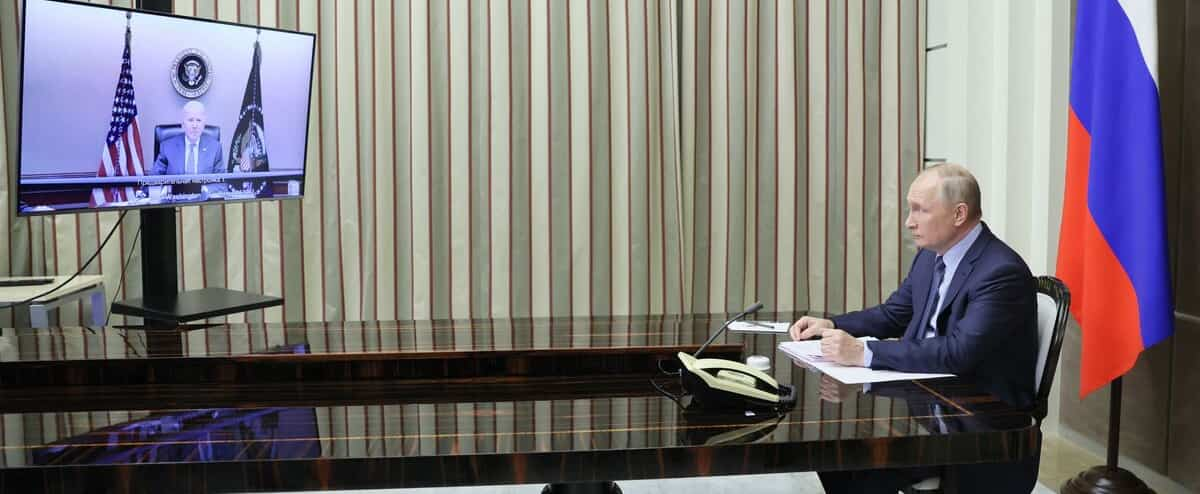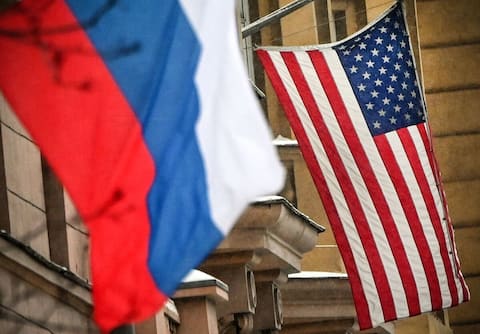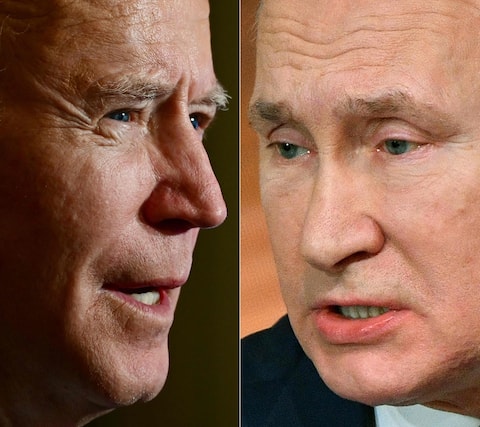
Joe Biden and Vladimir Putin had a two-hour high-risk exchange on Tuesday, with fears of a military escalation in Ukraine being the main issue.
Read more: Biden-Putin talks: Russia’s objectives in Ukraine
Read more: “I do not believe you have a soul”
Russian news agencies announced the end of the conversation, after which the White House said the interview ended at 5:08 pm GMT.
According to Washington, the debate between the US and Russian presidents began at 3:07 pm GMT time and was exchanged on Russian television.
“Nice to meet you again,” Joe Biden said.
“I congratulate you, Mr. President,” Vladimir Putin smiled and sat down at a long table, in front of a screen, looking at his opponent. The Russian president was at his home in Sochi, a resort on the shores of the Black Sea.
The U.S. president took part in the conversation from the White House’s ambitious chamber, which is a high – security room for controlling critical U.S. military intervention, and closed to journalists.
His National Security Adviser, Jake Sullivan, will answer questions from reporters at 7 p.m., GMT.
The United States, which has been accused of going it alone on its way out of Afghanistan and pursuing certain international issues with little regard for its allies, has strongly emphasized close cooperation with Europeans and Ukrainians.
Joe Biden will be in touch by phone with French President Emmanuel Macron, German Chancellor Angela Merkel and Italian Prime Ministers Mario Draghi and British Boris Johnson after his exchange with Vladimir Putin on Tuesday.
He had already spoken with similar allies on Monday and agreed to stay in “close contact”.
The U.S. administration announced on Monday that Joe Biden would report the conversation to Ukrainian President Volodymyr Zhelensky in the coming days.
“Stable” and “Predictable”
The hope that the US president will establish a “stable” and “predictable” relationship with Russia was expressed during a summit between the two men in Geneva in June, which seems to have lived at least for a moment.
Washington, NATO and Kiev accuse Moscow of concentrating troops on the Ukrainian border. The scene is reminiscent of 2014 and the annexation of the Crimean peninsula by Russia, after which an armed conflict erupted in eastern Ukraine, killing more than 13,000 people.
The Kremlin denies any plans for an invasion. Moscow accuses Washington of ignoring its own concerns: increased activity by NATO powers in the Black Sea, Ukraine’s desire to join the Atlantic Alliance and Kiev’s desire to arm itself with the West.
“Russia never wants to attack anyone, but we have red lines,” Kremlin spokesman Dmitry Peskov assured Monday.
Many observers in Europe and the United States believe that Vladimir Putin is confused about the deployment of troops on Ukraine’s borders, but some reject the possibility of an attack altogether.
A senior White House official has warned that if Moscow takes action, the United States will “respond positively” to calls for an increase in the US military presence in Eastern Europe and provide additional support to the Ukrainian military.
Washington is also using the threat of sanctions against the Russian regime. This ensures that they will be more painful than they have accumulated in Russia since 2014 without much impact.
“We are well aware that the US side is dependent on sanctions,” a Kremlin spokesman said on Tuesday.
European Commission President Ursula van der Leyen warned on Tuesday that the European Union was ready to accept additional sanctions against Russia.
The hosting of this virtual Biden-Putin summit is already a victory for Russia, which claims to be an inevitable geopolitical power, thus temporarily tearing the US president from rivalry with his main strategic priority, China.
It had been a few weeks since the Kremlin had called for a face-to-face meeting between the two leaders.
Beyond Ukraine, strategic stability and nuclear weapons control, hacking and cyber security, and Iran’s nuclear power were among the topics discussed on Tuesday.
“As the two presidents move towards dialogue, it becomes clear that they are not targeting the stalemate because they want to discuss issues,” Dmitry Peskov noted. “But we should not expect immediate improvements,” he warned.






More Stories
More than 200 former Republican aides back Kamala Harris | US Election 2024
An investigation into the ill-treatment of the Lev Tahor sect in Guatemala
Brossard is suspected by the US of supporting Russia’s war effort